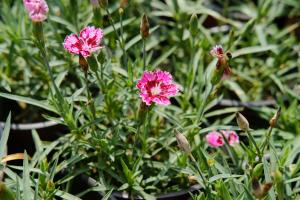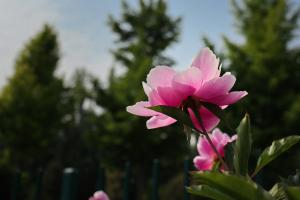Do Plants Go in Tap Water?
As a plant owner, it's important to know what type of water is best for your plants. Tap water is readily available and convenient, but is it the right choice for your greenery? In this article, we will explore whether or not plants can go in tap water, and if there are any potential drawbacks to using it.
The Pros and Cons of Tap Water for Plants
The benefits of using tap water for your plants are mainly related to accessibility and cost. Most people have easy access to tap water, and it doesn't cost anything extra to use it for watering your plants. Tap water also contains essential minerals that can be beneficial for plant growth, such as calcium and magnesium.
However, there are some downsides to using tap water for plants. First, tap water can contain chemicals like chlorine and fluoride, which can be harmful to plants in high concentrations. Additionally, tap water can have an imbalanced pH level, which can make it difficult for plants to absorb nutrients from the soil. Lastly, tap water may contain impurities, such as heavy metals or bacteria, which can be harmful to both plants and humans.
How to Determine if Tap Water is Safe for Plants
If you're wondering whether or not your tap water is safe for your plants, there are a few ways to test it. First, you can test the pH level of your water using a pH testing kit. Ideally, the pH of your tap water should be between 6.0 and 7.5 for most plants. If it is outside of this range, you can adjust it by adding a pH balancing agent to the water.
You can also test for chlorine and fluoride levels in your tap water. You can do this by contacting your local water supplier or using a water testing kit. If the levels are higher than recommended, you can filter your tap water or let it sit out for 24 hours before using it to allow the chemicals to evaporate.
Alternatives to Tap Water for Plants
If you're not comfortable using tap water for your plants, there are a few alternatives that you can consider. Distilled water is a good option because it is free of impurities and has a neutral pH level. However, distilled water lacks essential minerals that plants need to thrive, so you may need to supplement with a fertilizer.
Rainwater is another option that many plant owners swear by. It is naturally free of chemicals and has a balanced pH level. However, it may contain debris or pollutants if collected from an urban area, so it's important to filter it before use.
Conclusion
In conclusion, plants can go in tap water, but it's important to be aware of the potential drawbacks. If you're unsure about the safety of your tap water, you can test it and make adjustments as necessary. Alternatively, you can consider using distilled water or rainwater for your plants. Regardless of what type of water you choose, remember to monitor your plants for any signs of stress or toxicity, and adjust your watering routine as needed.

 how many times do yo...
how many times do yo... how many planted tre...
how many planted tre... how many pine trees ...
how many pine trees ... how many pecan trees...
how many pecan trees... how many plants comp...
how many plants comp... how many plants can ...
how many plants can ... how many plants and ...
how many plants and ... how many pepper plan...
how many pepper plan...































